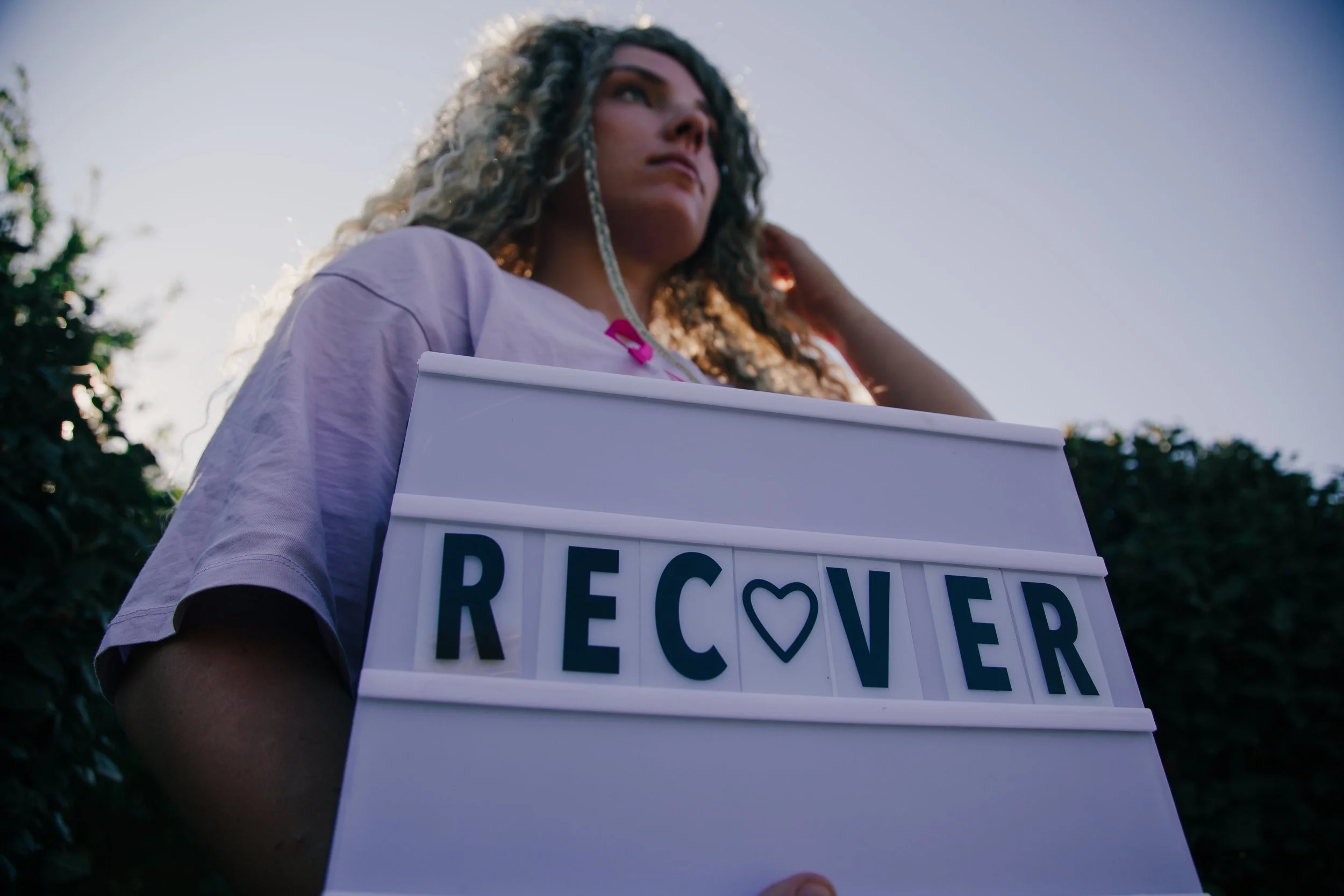September is National Recovery Month: Celebrating Recovery and Mental Health
National Recovery Month in September brings together millions of people across the country to celebrate the progress made in addiction and mental health recovery. It's a time to raise awareness about effective treatments and reduce the stigma surrounding these conditions. This guide offers practical information and inspiration for families, professionals, and individuals on their recovery journey, highlighting proven therapies, community support, and personal success stories. You'll discover:
What National Recovery Month is, its background, and its significance
How addiction and mental health disorders can influence recovery
Effective treatment options and new recovery technologies
Ways to get involved in September events and help reduce stigma
Resources for families, communities, and inspiring personal stories
What is National Recovery Month and Why Does It Matter?
National Recovery Month, observed every September, is dedicated to promoting and supporting evidence-based treatment and recovery practices. Through events, education, and community involvement, it fosters hope and works to dismantle social stigma. This month-long initiative emphasizes the power of peer support and professional resources to improve outcomes for individuals and families navigating substance use disorders and mental health challenges.
What is the purpose and history of National Recovery Month?
National Recovery Month began in 1989 as"Treatment Works!" under the Substance Abuse and Mental Health Services Administration (SAMHSA) to highlight that recovery is achievable for everyone with the right support. Over more than three decades, it has grown into a widespread awareness campaign, now led by Faces& Voices of Recovery and supported by federal agencies. It shines a light on advancements in treatment, peer support, and policy advocacy, celebrating recovery and progress.
Who organizes and supports National Recovery Month?
While SAMHSA initiated the observance, Faces & Voices of Recovery now spearheads the planning and coordination. They collaborate with federal, state, and local partners, advocacy groups, treatment providers, and recovery community organizations. Their combined efforts ensure that toolkits, themes, and outreach materials reach schools, workplaces, and faith-based communities nationwide.
Why is National Recovery Month important for individuals and communities?
National Recovery Month is crucial because it:
Increases awareness of substance use and mental health disorders, encouraging early intervention
Celebrates recovery achievements to inspire others and combat feelings of isolation
Promotes access to effective therapies and supportive networks
Helps reduce stigma by sharing data and personal experiences
By connecting public education with community events, Recovery Month strengthens the social fabric that supports lasting well-being.
How Do Addiction and Mental Health Impact Recovery?
Addiction and mental health disorders can each disrupt daily life through biological, psychological, and social factors. When they occur together, they create more complex challenges for treatment, requiring integrated approaches to improve overall recovery success. Understanding these conditions as medical illnesses, rather than personal weaknesses, is fundamental to providing compassionate and effective support.
What are substance use disorders and their effects?
Substance use disorders (SUDs) are chronic medical conditions marked by compulsive use of drugs or alcohol, even when it leads to harmful consequences. These disorders alter brain chemistry and decision-making processes. The neurological impact involves disruptions in dopamine pathways, leading to tolerance, withdrawal symptoms, and impaired self-control, which in turn affect relationships, employment, and physical health.
How do co-occurring mental health conditions affect recovery?
When conditions like depression, anxiety, bipolar disorder, or PTSD are present alongside a SUD, each disorder can worsen the other due to shared neurobiological and behavioral factors. Integrated dual-diagnosis treatment addresses both conditions simultaneously. This often involves a combination of psychotherapy, medication management, and peer support, leading to more stable recovery and fewer instances of relapse.
The Impact of Co-Occurring Disorders on Individuals & the Recovery Process
Co-occurring disorders, where substance use disorders and mental health disorders exist simultaneously, present unique challenges in recovery, including an increased risk of relapse and the need for integrated treatment approaches. Integrated treatment ensures both conditions are addressed simultaneously, reducing the risk of relapse and improving treatment outcomes.
What Are the Evidence-Based Treatment and Recovery Options?
Evidence-based treatment combines medical, psychological, and social interventions to address substance use disorders and mental health conditions. This approach enhances long-term wellness, reduces the risk of relapse, and empowers individuals to rebuild healthy lives. Peer support, medication-assisted therapies, and innovative methods create a comprehensive continuum of care.
Which addiction treatment methods are most effective?
The most effective addiction treatments include:
Medication-Assisted Treatment (MAT): This approach combines FDA-approved medications (like buprenorphine and naltrexone) with counseling to stabilize brain chemistry.
Cognitive Behavioral Therapy (CBT): CBT helps individuals identify and change harmful thought patterns that contribute to substance use.
Contingency Management: This method offers tangible rewards for adhering to treatment and maintaining abstinence.
These methods significantly reduce substance use and improve psychosocial functioning when tailored to individual needs.
Evidence-Based Addiction Therapies & Treatments
Cognitive Behavioral Therapy (CBT) is a key aspect of comprehensive addiction treatment, helping individuals change thoughts, attitudes, and behaviors related to drug or alcohol use. CBT teaches people how to recognize and modify problematic thoughts, feelings, and behaviors that lead to substance use.
How does mental health support integrate with addiction recovery?
Integrated care models coordinate mental health services—such as psychiatric evaluations, psychotropic medications, and trauma-informed therapy—with addiction treatment. This addresses the underlying emotional and cognitive factors driving substance use. This unified approach ensures both conditions are treated concurrently, promoting holistic healing and breaking the cycle of relapse.
What emerging therapies and technologies support recovery?
Recovery is being enhanced by new approaches that utilize neuroscience and digital tools:
Telehealth Platforms: These platforms extend counseling and medication management services to rural or underserved areas through secure video conferencing.
AI-Driven Care Planning: Artificial intelligence is used to personalize treatment recommendations based on predictive analysis of patient data.
These innovations broaden access and offer customized support tailored to each individual's recovery path.
How are peer support and community programs vital to recovery?
Peer support specialists, individuals with lived experience, offer empathy, shared strategies, and accountability that complement professional treatment. Community programs, such as recovery cafés and sober living homes, create safe environments for building social connections that reinforce positive behaviors and foster a sense of belonging.
Rehabs UK, (April 6, 2025)
What is Peer Support for Addiction?
Peer support, which involves individuals with lived experiences of addiction offering guidance and support, has been shown to enhance recovery outcomes by fostering a sense of community and shared understanding. Studies indicate that peer-run self-help groups can lead to improved psychiatric symptoms, decreased hospitalization rates, and enhanced self-esteem and social functioning.
Benefits of Peer Support Groups in the Treatment of Addiction
Peer support can be defined as the process of giving and receiving nonprofessional, nonclinical assistance from individuals with similar conditions or circumstances to achieve long-term recovery from psychiatric, alcohol, and/or other drug-related problems. Studies have demonstrated increased treatment retention, improved relationships with treatment providers and social supports, increased satisfaction, and reduced relapse rates.
How Does Recovery Month Help Reduce Stigma and Promote Awareness?
Recovery Month works to combat stigma by presenting addiction and mental illness as treatable medical conditions. It highlights success stories and normalizes seeking help. Awareness campaigns aim to shift public perception, paving the way for policy changes and fostering empathetic community support.
The effectiveness of interventions for reducing stigma related to substance use disorders: a systematic review
Stigma towards people with substance use disorder can be seen at all levels of care within health care settings. Effective strategies for addressing social stigma include motivational interviewing and communicating positive stories of people with substance use disorders.
What are common misconceptions about addiction and recovery?
Many people mistakenly believe that:
Addiction is a moral failing rather than a chronic disease
Recovery is quick and requires only willpower
Relapse means treatment has failed, rather than being a part of the recovery process
Summary
Addressing these misconceptions helps create a culture where seeking help is seen as a sign of strength, not weakness.
How do awareness campaigns foster understanding and support?
By combining data-driven messages with personal testimonials, awareness campaigns humanize statistics and demonstrate that recovery is possible for people from all walks of life. Public service announcements, community speakers, and social media initiatives reinforce the message that"Recovery Is Real." The Canadian Mental Health Association plays a crucial role in these campaigns.
What actions can communities take to support stigma reduction?
Communities can take the following actions:
Train local leaders in mental health first aid and how to communicate without stigma
Include recovery speakers in school assemblies and workplace wellness programs
Advocate for policy changes that ensure insurance parity and increase funding for treatment
These efforts help create environments where individuals feel safe to seek services and share their experiences.
What Resources Are Available for Families and Communities Supporting Recovery?
Families and communities play vital roles in prevention, early intervention, and ongoing support. They can utilize educational materials, support groups, and advocacy networks. Access to these resources strengthens the entire recovery ecosystem.
How can families support loved ones in recovery?
Families can:
Educate themselves about addiction science and relapse prevention strategies
Maintain open, nonjudgmental communication
Connect loved ones with peer support groups and family therapy programs.
Active involvement and understanding help reduce isolation and reinforce healthy coping skills.
Family Therapy for Substance Use Disorders and Addiction Recovery
Research indicates that family therapy for SUDs provides many benefits, such as improved treatment retention, increased family support for the person in recovery, and a reduced risk of relapse. Family involvement is important but it's not for everyone.
What prevention strategies help reduce substance misuse?
Effective prevention strategies include:
School-based education that teaches refusal skills and resilience
Community coalitions that engage youth in constructive activities
Public health campaigns that highlight early warning signs and where to find help
By addressing risk factors and building protective factors, communities can reduce the incidence of substance misuse.
How can communities advocate for recovery-friendly policies?
Communities can champion:
Legislation for insurance coverage of SUD and mental health treatments
Funding for peer recovery support services and sober living facilities
Workplace policies that accommodate treatment and recovery appointments
Policy advocacy expands the safety net and ensures sustainable support systems.
What Are Personal Stories and Successes from the Recovery Community?
Personal narratives highlight the real-world impact of treatment interventions, peer support, and resilience. They inspire others to seek help and reinforce the message that recovery is achievable with the right resources and community backing.
How do personal recovery journeys inspire others?
Stories from individuals who have overcome addiction through therapy, mutual-aid groups, or holistic practices demonstrate resilience and encourage peers to pursue their own paths to wellness. Shared challenges and triumphs create relatable examples of hope.
What role do shared experiences play in sustaining recovery?
Group meetings, mentoring relationships, and recovery networks provide accountability, emotional validation, and practical advice. These social connections enhance coping skills and foster a sense of purpose that aids in maintaining long-term mental health.
Recovery in September and throughout the year depends on our collective understanding that addiction and mental health issues are treatable medical conditions that deserve compassion, evidence-based care, and community solidarity.
By participating in events, sharing knowledge, and advocating for supportive policies, we can amplify hope and strengthen the pathways that lead individuals from crisis to lasting wellness.
This September, we honor past achievements and inspire future progress in addiction and mental health recovery.
About Dunham House
Located in Quebec's Eastern Townships, Dunham House is a residential treatment centre specializing in mental health and addiction. We are the only residential facility of our kind in Quebec that operates in English.
Our evidence-based treatment programs include a variety of therapeutic activities such as art, music, yoga, and equine-assisted therapy. In addition to our residential services, we offer a full continuum of care with outpatient services at the Queen Elizabeth Complex in Montreal.
Click here more information about our programs and admissions







